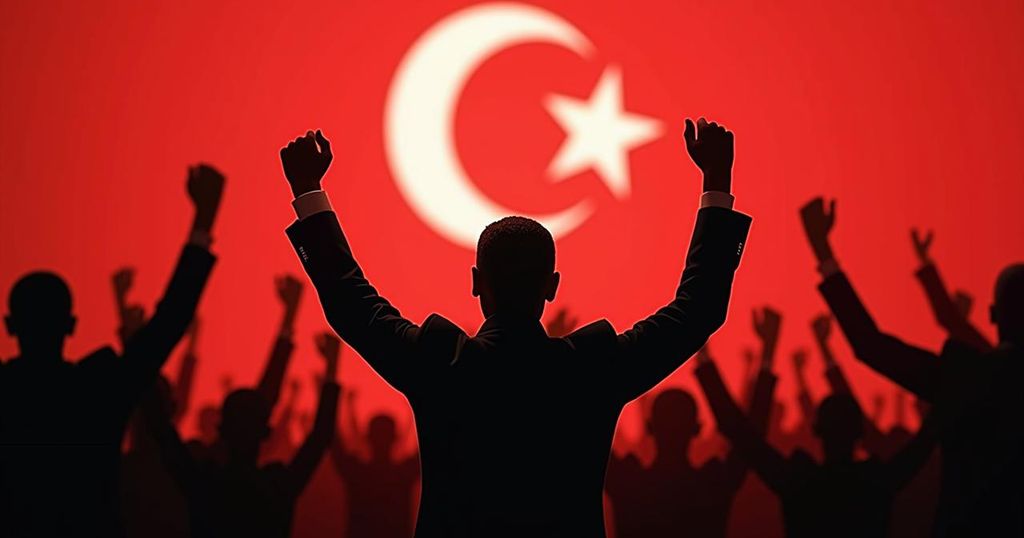Tunisia’s Presidential Election: A Drift Back to Authoritarianism Under Kais Saied

President Kais Saied won re-election in Tunisia amidst allegations of engineered electoral conditions, securing more than 89 percent of the vote. The election saw reduced voter turnout and was criticized for the disqualification of rivals and political repression, marking a retreat into authoritarianism reminiscent of past dictatorships.
In the recent Tunisian presidential election, incumbent President Kais Saied achieved a resounding victory, as indicated by exit polls broadcast via state television. This election, which marked Tunisia’s first since Saied began reversing the democratic reforms established following the 2011 Arab Spring, saw President Saied garnering over 89 percent of the votes. His primary competitors, Ayachi Zammel, who is presently in prison on allegations of electoral fraud widely condemned as baseless, and Zouhair Maghzaoui, a former supporter turned challenger, failed to create significant electoral momentum against Saied. Critics argue that Saied’s re-election was facilitated through orchestrated means, notably including the disqualification of potential rivals and restrictive measures that led to a vastly reduced voter turnout, which was approximately half of that observed during the previous presidential election. This decline reflects a growing disenchantment with Saied’s governance amid ongoing economic and political crises, despite his initial popularity following his first election in 2019. The current electoral landscape has been perceived as a regression to the autocratic tendencies reminiscent of Zine el-Abidine Ben Ali’s regime, which lasted from 1987 until the 2011 revolution.
Tunisia, known as the birthplace of the Arab Spring, has undergone a significant political transition since the overthrow of long-time dictator Zine el-Abidine Ben Ali in 2011. Following the revolution, the nation embarked on a path to democracy, characterized by competitive elections and the establishment of various political parties. However, in recent years, President Kais Saied has been criticized for dismantling these democratic institutions, thereby fostering an authoritarian regime. The current climate of political repression includes disqualifying candidates and curtailing free elections, culminating in a troubling return to authoritarian practices and a decline in public faith in the electoral process.
The recent re-election of President Kais Saied underscores the troubling trend of authoritarianism resurfacing in Tunisia, a nation once celebrated for its democratic aspirations post-Arab Spring. Saied’s overwhelming victory, achieved through the suppression of legitimate political opposition and significant disillusionment among voters, raises pressing concerns about the future of democracy in the country. As Tunisians grapple with considerable socio-economic challenges, their disenchantment signals a precarious state of political affairs, prompting questions about the legitimacy and sustainability of Saied’s governance.
Original Source: www.nytimes.com






